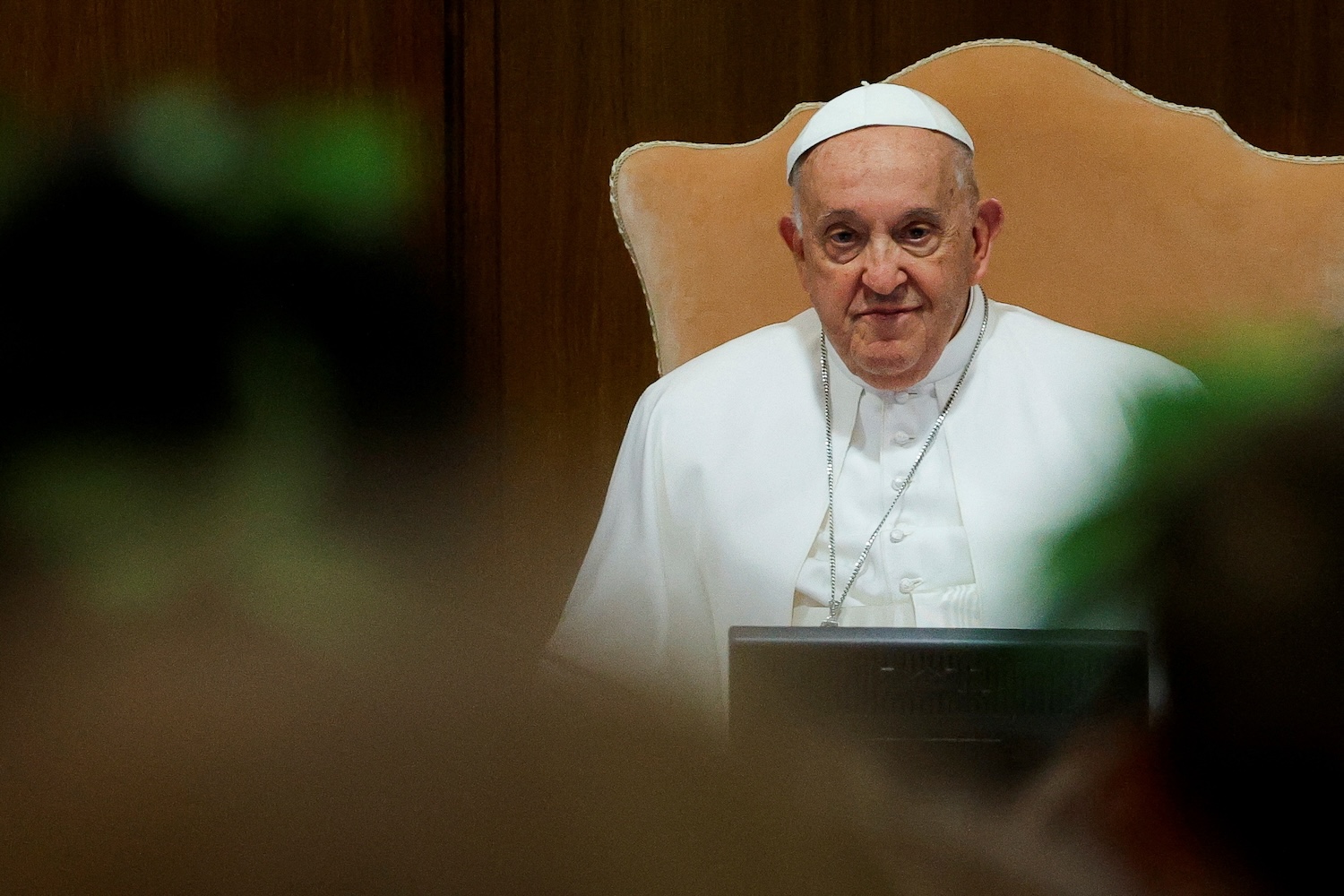
Vatican warns against believing in apparitions, including weeping Madonnas
The Vatican released new recommendations on Friday that advise taking a careful approach to purported supernatural occurrences that have terrified Catholic faithful for centuries, such as crying Madonnas and dripping crucifixes.
In an interview with Italian RAI TV last year, Pope Francis expressed his skepticism towards such phenomena, saying that Mary apparitions are “not always real” and that he prefers to perceive her as “pointing to Jesus” rather than bringing attention to herself.
Shrines and pilgrimages have frequently been founded on accounts of incidents related by the faithful, such as the apparition of “stigmata,” or Jesus’ crucifixion wounds, on the hands and feet of holy individuals.
The Vatican’s doctrinal office (DFF) stated in a statement that replaced the 1978 regulations that such instances should be evaluated extremely carefully since they might be fake and used to further personal cults or achieve financial advantage.
“The discernment may also deal with problems, such as delicts (wrongdoing), manipulation, damage to the unity of the Church, undue financial gain, and serious doctrinal errors that could cause scandals and undermine the credibility of the Church,” it stated.
According to the DDF, bishops should typically grant a “nihil obstat” in these situations, which is effectively permission to worship while leaving open the possibility that the event could be officially recognized by the Vatican as “supernatural.”
But this kind of acknowledgment is quite uncommon.
It further stated that although numerous pilgrimage sites are connected to alleged supernatural occurrences that the Vatican has not confirmed, this does not seriously undermine the faith.
One example is the well-known shrine of Medjugorje in Bosnia, where numerous reports of Virgin Mary apparitions date back to 1981, despite the fact that the location is not included in Friday’s statement.
According to the DDF, bishops have the authority to make five more decisions, such as rejecting an experience as supernatural or taking action to restrict or outlaw the worship of dubious or blatantly phony phenomena.
The DDF stated that before releasing their decisions, bishops should always obtain Vatican clearance. It also mentioned that in extraordinary circumstances, the pope or the department itself may step in and take direct action, eluding local Church officials.
Protestantism emerged in Europe in the 16th century, partly due to a schism in Christianity caused by the growth of purported religious experiences, some of which were blatantly fraudulent.
All Categories
Recent Posts
Tags
+13162306000
zoneyetu@yahoo.com



